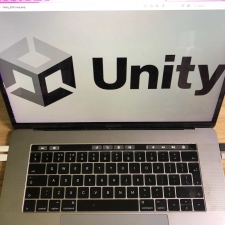The moment is finally here. After promising a windback of their unpopular planned fee restructuring back on September 18 here, and co-founder David Helgason promising as much in his “We fucked up” apology here AND Unity CEO John Riccitiello teasing a 4% cap and more in a leaked meeting here, we FINALLY have official word on what Unity are going to do.
In an open letter the company announced not the big climbdown that many will have hoped for, but changes that go further than many had predicted.
In brief the Unity Personal plan will remain free and there will be no Runtime Fee for games built on Unity Personal. The cap for fees increases from $100,000 to $200,000 and no game earning less than $1 million in 12-month revenue will hit a fee.
Meanwhile on Unity Pro and Unity Enterprise the Runtime Fee will only apply beginning with the version of Unity shipping in 2024 and beyond so games currently active and projects currently in progress will be exempt.
Beyond that, games that do hit the Runtime Fee can choose from either a 2.5% revenue share or a fee based on self-reported installs with devs being charged whichever is the lesser amount.
Yup. You read that right. The Runtime fee stays.
The letter in full from Unity's Marc Whitten reads:
To our community:
I’m Marc Whitten, and I lead Unity Create which includes the Unity engine and editor teams.
I want to start with simply this: I am sorry.
We should have spoken with more of you and we should have incorporated more of your feedback before announcing our new Runtime Fee policy. Our goal with this policy is to ensure we can continue to support you today and tomorrow, and keep deeply investing in our game engine.
You are what makes Unity great, and we know we need to listen, and work hard to earn your trust. We have heard your concerns, and we are making changes in the policy we announced to address them.
Our Unity Personal plan will remain free and there will be no Runtime Fee for games built on Unity Personal. We will be increasing the cap from $100,000 to $200,000 and we will remove the requirement to use the Made with Unity splash screen.
No game with less than $1 million in trailing 12-month revenue will be subject to the fee.
For those creators on Unity Pro and Unity Enterprise, we are also making changes based on your feedback.
The Runtime Fee policy will only apply beginning with the next LTS version of Unity shipping in 2024 and beyond. Your games that are currently shipped and the projects you are currently working on will not be included – unless you choose to upgrade them to this new version of Unity.
We will make sure that you can stay on the terms applicable for the version of Unity editor you are using – as long as you keep using that version.
For games that are subject to the runtime fee, we are giving you a choice of either a 2.5% revenue share or the calculated amount based on the number of new people engaging with your game each month. Both of these numbers are self-reported from data you already have available. You will always be billed the lesser amount.
We want to continue to build the best engine for creators. We truly love this industry and you are the reason why.
I’d like to invite you to join me for a live fireside chat hosted by Jason Weimann today at 4:00 pm ET/1:00 pm PT, where I will do my best to answer your questions. In the meantime, here are some more details.
Thank you for caring as deeply as you do, and thank you for giving us hard feedback.
Marc Whitten
The story so far
For those who may have missed the world's most popular development platform's dramatic fall from developers' affections this past week, we’ve got the full story front to back right here. Suffice to say that the Unity had planned to revise their pricing structure, with the most prominent feature being the introduction of a Unity Runtime Fee - charging developers $0.20 per install of any game developed using Unity’s tools.
The fee was - they estimated - a fair way to charge that bit extra and push a company that has been operating at a loss for 18 years (despite being much loved and used by 70% of the world’s developers) into profit for the first time.
However, it seems that their moves to finally make some cash - with a measure that would, they estimated, only make a change to the top 10% most profitable of their users - stirred up emotions that none of Unity’s management saw coming.
Edge cases and unique scenarios they hadn't banked on snowstormed rapidly, highlighting the lack of consultation prior to the announcment and leading to today's much needed revisions and clarification.
A rock and a hard place
At the time of writing it's unclear just how successful this latest plan will be, both in terms of appeasing their enraged users and finally putting a smile on the faces of their shareholders and investors who've watched the company's share price slowly plumet 80% in value from it's high in 2021.
Can they make both groups happy? Miracles can happen, but right now it would appear that Unity are firmly between a rock and a hard place.
Despite dropping the news on a Friday you can bet that Unity’s management and staff will be spending the weekend crossing fingers and toes with one eye on the forums…
More news on the reaction as it happens.





















